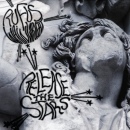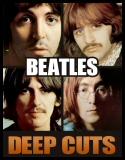Music Home / Entertainment Channel / Bullz-Eye Home
 Buy your copy from Amazon.com
Buy your copy from Amazon.com
| Rufus Wainwright: Release the Stars Released: 2007 |
Rufus Wainwright has never been mistaken for the kid in class with the most school spirit, but in comparison to his first two albums, there is no question that Want One and Want Two, Wainwright’s last two albums for the now-defunct DreamWorks label (R.I.P.), could were his fugue period. Straight outta rehab and deathly serious, the Want albums were brilliant but ponderous, with every ounce of peppiness (“Movies of Myself”) balanced with a healthy dose of world-weariness (“11:11,” “Dinner at Eight”), and Wainwright meant every single word of it to the very depths of his soul. Even his song about leaving his phone on vibrate in the hopes of getting a booty call carried a profound sense of ache and longing.
Wainwright’s latest, Release the Stars, has its heavy moments as well, of course, but the overall tone of the album is much more in line with 2001’s Poses than the Want albums. Pomp is much easier to digest when it comes with a spring in its step, and one can only assume that that is the influence of Stars executive producer Neil Tennant, who knows a thing or two about adding a spoonful of sugar to help the medicine go down. The problem is, the album could use some more sugar.
The one thing that leaps to mind about Release the Stars is that it’s, well, horny. And by that, I mean filled with horns. Leadoff track “Do I Disappoint You,” which carries a similar structure to Want One opener “Oh What a World,” is full ‘o horns, as is the showstopper “Between My Legs,” which features a spoken word bit from Sian Phillips (“I, Claudius”) that calls to mind Judy Garland’s appearance on the last Scissor Sisters album. The title track, which closes the album, is another blowout, literally, that any fan of “14th Street” will love.
And there’s the rub with Release the Stars: a pattern is definitely starting to emerge in Wainwright’s songwriting. Each album is guaranteed to have the “14th Street”-style Broadway song-and-dance number, the “Go or Go Ahead” slow builder (“Slideshow”), and the operatic opener that ultimately explodes like a cloudburst. Meanwhile, the folk and pop aspects of his songwriting seem to have disappeared entirely, which is bad news for anyone who was a fan of bouncy songs like “April Fools,” “California,” “Grey Gardens” or “Cigarettes and Chocolate Milk.” And let’s not forget “Shadows,” the great, beat-driven Poses collaboration with onetime Propellerhead Alex Gifford that now appears to be little more than a one-off experiment. Pity, because his albums could use more moments like that.
There is no denying Rufus Wainwright’s immense talent, but it’s curious to see his songwriting become so insular as he gets older, when he set a precedent early on for having no boundaries to his music. Show Tunes Rufus is all well and good, but where is Pop Boy Rufus or Jazz Hound Rufus? Their absence on Release the Stars is glaring, and sorely missed.
davidm@bullz-eye.com






